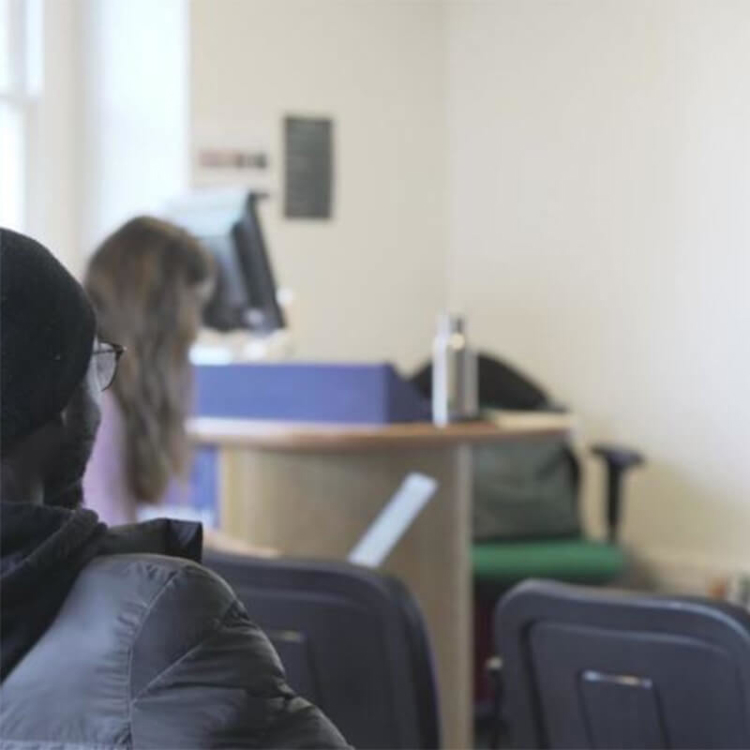Duration:
1 year (full-time)
2 years (part-time)
Please add an additional year if undertaking the Professional Experience Year: integrated 2-year masters
Number of credits:
MSc: 180
PGDip: 120
PGCert: 80
Start date(s):
September 2025
September 2026
January 2027
On this exciting programme you will be introduced to forensic psychology and criminal behaviour and gain a detailed understanding of the application of clinical skills, such as forensic psychological assessment, consultancy provision, practical interventions and evaluation in forensic settings.
Did you know?
You'll gain an in-depth understanding of psychological research and theory and their practical application in various settings within the legal and criminal justice system.
Modules
Professional Experience Year
This course also offers the option of a Professional Experience Year. This programme combines dynamic career modules with flexible placement opportunities. After completing your first year of study, you'll then complete a full year of Professional Experience training as part of your degree. This will give you real career experience. This unique opportunity offers you distinct paths to build your expertise.

Skills
Scrutinise theoretical models of criminal behaviour on our MSc Psychology of Forensic and Criminal Behaviour.
You will:
- develop an understanding of why people offend
- study the onset, development and maintenance of offending behaviours
- consider the links between theoretical approaches and practical applications to forensic work.
You'll also learn about a range of therapeutic interventions while acknowledging the challenges that are inherent to working with a forensic population.
The curriculum spans a variety of topics, focusing on the theoretical foundations of forensic psychology across different contexts within the criminal justice process. At Roehampton you will:
- learn about a range of therapeutic interventions while acknowledging the challenges that are inherent to working with a forensic population
- explore the complex relationship between mental disorders and criminal behaviour
- gain an understanding of the criminal justice system in England and Wales and its various agencies, including law enforcement, the courts, the penal system and crime prevention agencies.
- discuss the role of psychology within the criminal justice system
- be introduced to different aspects of investigative psychology, such as interviewing, eyewitness memory, jury decision-making and offender profiling.
Special emphasis is placed on the relationship between mental health and offending behaviour, and on developing your identity as a forensic psychologist in training.
Learning
You will be taught by leading experts.
You’ll examine the latest research, study real-life case studies, learn to carry out assessment interviews and evaluate available evidence.
You’ll also develop transferrable professional skills including specialist report writing and communicating your findings and expertise to a wider audience. To further your professional development, you’ll learn about ethical considerations in research projects, data collection and data analysis.
Our interactive teaching approach encourages you to critically evaluate research and apply theoretical understandings to practical workshops, helping you develop assessment and consultancy skills.
You'll engage in stimulating debates and discussions on topics such as the effectiveness of prisons in reducing reoffending, clinical skills like risk assessment, and managing various professional issues in forensic practice.
You will also complete your own master’s research project, using the knowledge and skills you’ve learned on the programme in your own small-scale research project.
By the end of the programme, you'll understand how mental health influences the thoughts, feelings, and actions of different forensic client groups and explore how the criminal justice system addresses crime and victimisation.
Our teaching and learning strategy is designed to foster active participation and deepen your understanding of key subjects.
You will engage in debates and discussions on contemporary issues such as the role of mental health in offending behaviour and the ethics of incarceration.
In addition to the curriculum, this programme offers the chance to develop a range of globally relevant, practice-based transferable skills, including effective communication, critical thinking, reflection, synthesis, and ethical evaluation.
Career
On completion of the MSc Psychology of Forensic and Criminal Behaviour, graduates will be able to offer a broad range of knowledge and skills, which will support them to work across a number of sectors, including:
- Prison service
- Charities
- Psychological assessment developers
- Youth offending services and institutions
- Recruitment
- Ministry of Justice
- Home Office
- Police service
- Border Agency
- Security services/agencies
- Data collection and analysis in the Government or police research sector
- NHS
- Academia
- The Probation Service
- Rehabilitation units
- Secure Hospitals
- Victim Support

Open days
Get a real taste of our campus, community and what it’s like to study at Roehampton
Applying
UK postgraduate students apply through our direct application system.
Course subject to curriculum review and validation.
Specific entry requirements
- Applicants are required to hold a second class honours degree (or recognised equivalent qualification).
- Applicants should have a degree in psychology, criminology or from a similar subject area.
General entry requirements
September 2025 entry tuition fees (UK)
| Level of study | Full-time | Part-time* |
| MSc | £11,250 Professional Experience Year: £2,500 |
£5,625 |
*Year 1 fee
We offer a wide range of scholarships and bursaries. See our financial support pages for UK students.
We also provide other ways to support the cost of living, including free buses and on-campus car parking, hardship support and some of the most affordable student accommodation and catering in London. Find out more about how we can support you.
International postgraduate students apply through our direct application system.
Course subject to curriculum review and validation.
Specific entry requirements
- Applicants are required to hold a second class honours degree (or recognised equivalent qualification).
- Applicants should have a degree in psychology, criminology or from a similar subject area.
General entry requirements
September 2025 entry tuition fees (international)
| Level of study | Full-time | Part-time* |
| MSc | £18,250 Professional Experience Year: £2,500 |
£9,125 |
*Year 1 fee
We offer a wide range of scholarships and bursaries. See our financial support pages for international students.
We also provide other ways to support the cost of living, including free buses and on-campus car parking, hardship support and some of the most affordable student accommodation and catering in London. Find out more about how we can support you.






